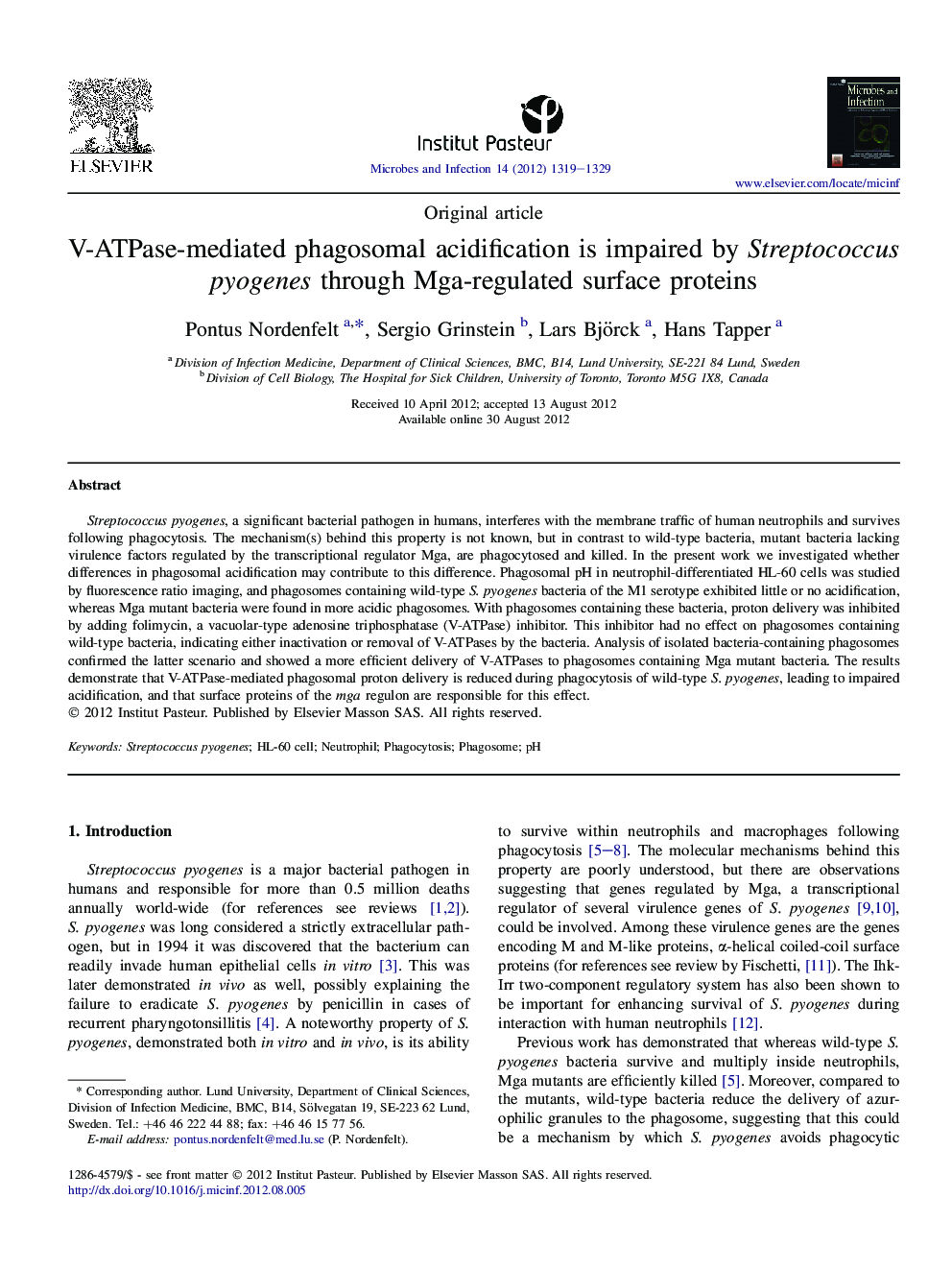| Article ID | Journal | Published Year | Pages | File Type |
|---|---|---|---|---|
| 6135880 | Microbes and Infection | 2012 | 11 Pages |
Abstract
Streptococcus pyogenes, a significant bacterial pathogen in humans, interferes with the membrane traffic of human neutrophils and survives following phagocytosis. The mechanism(s) behind this property is not known, but in contrast to wild-type bacteria, mutant bacteria lacking virulence factors regulated by the transcriptional regulator Mga, are phagocytosed and killed. In the present work we investigated whether differences in phagosomal acidification may contribute to this difference. Phagosomal pH in neutrophil-differentiated HL-60 cells was studied by fluorescence ratio imaging, and phagosomes containing wild-type S. pyogenes bacteria of the M1 serotype exhibited little or no acidification, whereas Mga mutant bacteria were found in more acidic phagosomes. With phagosomes containing these bacteria, proton delivery was inhibited by adding folimycin, a vacuolar-type adenosine triphosphatase (V-ATPase) inhibitor. This inhibitor had no effect on phagosomes containing wild-type bacteria, indicating either inactivation or removal of V-ATPases by the bacteria. Analysis of isolated bacteria-containing phagosomes confirmed the latter scenario and showed a more efficient delivery of V-ATPases to phagosomes containing Mga mutant bacteria. The results demonstrate that V-ATPase-mediated phagosomal proton delivery is reduced during phagocytosis of wild-type S. pyogenes, leading to impaired acidification, and that surface proteins of the mga regulon are responsible for this effect.
Related Topics
Life Sciences
Immunology and Microbiology
Immunology
Authors
Pontus Nordenfelt, Sergio Grinstein, Lars Björck, Hans Tapper,
